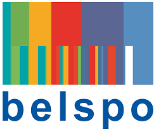International journal for Equity in Health published a qualitative study by Ddungu and colleagues on on Sub-Saharan African (SSA) communities’ needs, perceptions, and experiences of the COVID-19 pandemic and its control measures in Antwerp (Belgium) in 2020.
Data were collected using semi-structured interviews (mainly via Zoom or telephone) and group discussions with influential SSA community members. These analyses build on 16 transcribed interviews, notes of unrecorded interviews, and summaries inductively using a thematic analytical approach.
The study concludes that pre-existing disparities influenced the perceptions of and attitudes towards COVID-19 and its control strategies among SSA communities. Respondents reported having struggled with misinformation about the virus and prevention measures. Respondents perceived an added burden of COVID-19 control measures due to the interaction of social factors (i.e. being migrants, being undocumented, having experienced racism and discrimination) and economic factors (i.e. working in temporary and precarious jobs, not being able to apply for unemployment benefit, crowded housing conditions). SSA communities developed bottom-up initiatives to react quickly to the epidemic, including translation of prevention messages, food distribution, and online spiritual support.
The full article is available via: https://link.springer.com/article/10.1186/s12939-023-01867-w

